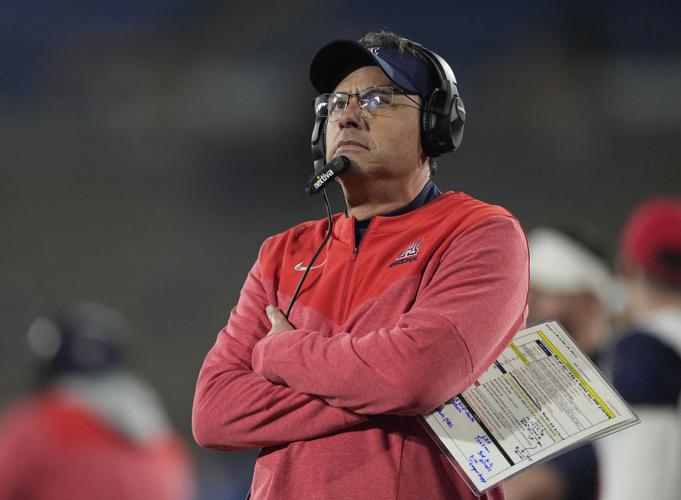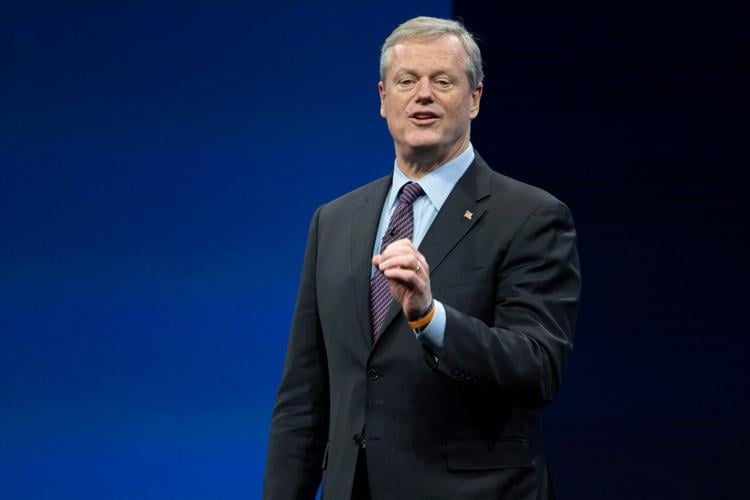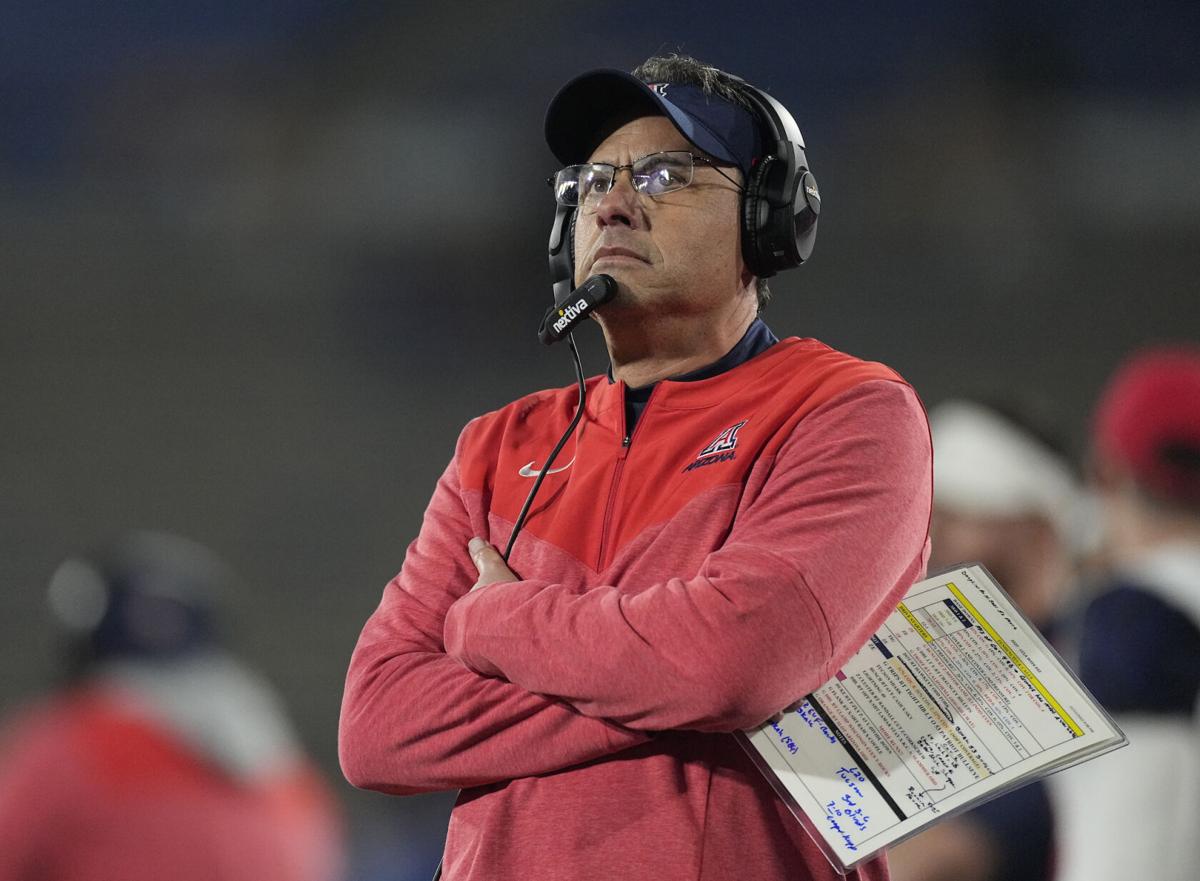About 30 minutes into a daylong discussion about the future of college sports Thursday in Washington, D.C., Arizona president Robert C. Robbins asked a question that arguably spoke to the heart of it all.
It was about money, of course.
The UA president asked Jason Belzer, who works with multiple NIL collectives as founder of Student Athlete NIL, what the average compensation has been for major college athletes in the NIL era.
Belzer, who had risen from the audience to tell NCAA president Charlie Baker that 95% of collective money goes to football and men’s basketball players, told Robbins that he’s found power conference football starters average $45,000 and power conference basketball starters average $75,000.
So there it was. There are still no public contracts, registries or formal guidelines to NIL compensation — just a bunch of opaqueness stitched together by a patchwork of differing state laws that college administrators are lobbying to have overridden via federal legislation — but the numbers have been floating out there anyway, fueling the transfer-portal merry-go-round.
For athletes, it can work like this: Don’t like getting less than $75,000? Upset that a teammate makes more than that? Think you can get more elsewhere?
Dip into the transfer portal and take a look around.
“When you sign your contract with the collective, you’re not bound,” said Walker Jones, head of the Ole Miss-focused Grove Collective, during a discussion about NIL.. “You can go, `Well, you know what? I’ve got my bird in the hand so I’m gonna use that as a bargaining tool. I kind of like it here, but I’m gonna go use this to make some money.’ I don’t think anybody loves that.”
Certainly not UA football coach Jedd Fisch. Sitting on a panel later that discussed the transfer portal, he talked about the challenges of building a roster when even starters are liable to have wandering eyes.
“We’re talking about when your best receiver on your team is going to go to another program to go get paid — and that’s why he’s going — because there’s really no other reason to go to the other program,” Fisch said. “If you’re a starter and you’re producing and life is good and you’re enjoying your opportunity — and you’re leaving — you’re leaving for money. And that’s the part of the NIL, transfer-portal piece that I think is significant.”
While Fisch annually has an 85-scholarship-player roster to juggle, the UA men’s basketball program has lost and received starters in just the past few months. Starting point guard Kerr Kriisa left for West Virginia while North Carolina’s leading scorer, Caleb Love, and San Diego State starter Keshad Johnson both joined the Wildcats.
The Wildcats also lost a more “traditional” transfer this spring when seldom-used wing Adama Bal left for Santa Clara for what will likely be a bigger role.
“There’s two portals: There’s the elite-player portal, and then there’s the portal. And the elite-player portal is where NIL is coming into play,” Fisch said. “The other 95% are doing it because they can’t make it on the team. They don’t feel like they are the right fit because they’re the third linebacker rather than being in the two-deep, or … (it’s because) `you brought in a freshman who’s better or a portal (player) who’s better, so I’m going to just move on and try my luck in a different program.’
“The problem is when the elite-transfer portal and NIL intertwine. That’s what I think we have to regulate.”

'I haven't talked to anybody at any level of college sports who doesn't think we need to deal with accountability and transparency,” NCAA president Charlie Baker said regarding transparency, or lack thereof, in the NIL marketplace.
Fisch said having players sign binding contracts could help coaches plan better, while panelists debated whether deals should be registered or otherwise more transparent — and whether there should be a cap on payments distributed.
Arizona’s two collectives, Friends of Wilbur and Wilma and the men’s basketball-focused Arizona Assist, have mostly discussed NIL payments only in an aggregate sense. Jones said the Grove Collective does not publicize its deals with Ole Miss athletes.
“A lot of student-athletes don’t want that out there,” Jones said. “Number two, it’d be a competitive disadvantage. I’ve got Georgia and my buddies in the SEC in the room, but we’re all trying to kill each other at the same time. But I’m not against some sort of registry where maybe there’s information about `it’s a starter on the women’s basketball team that’s a sophomore, who was a transfer, made this.’ That could help.”
Baker said having no visibility into the NIL market “puts everybody at risk,” noting the high percentage of athletes who enter the transfer portal and wind up finding nowhere to go. He said incorporating a legitimate commitment to Title IX could also help, alluding to Belzer’s estimate that only 5% of collective funds go to women’s sports and other men’s programs.
“I haven’t talked to anybody at any level of college sports who doesn’t think we need to deal with accountability and transparency,” Baker said. “So I actually view that as an opportunity for us to demonstrate that we can speak with one voice and communicate effectively about why this matters — and especially make the case that for student-athletes and their families in particular, this is important and we should work with them to get it right.”
Baker and many other college sports officials have been asking lawmakers about potential legislation that could override varying state NIL laws, making for a potentially more equal playing field. A new California bill aiming to force schools to share revenues with athletes is another concern of many college administrators.
“That’s why a lot of us are here this week in DC,” said ACC commissioner Jim Phillips, who spoke in favor of NIL contracts for athletes and agent registration. “Maybe the percentage of something getting done federally is small, but we’re all here because we still think that there’s an opportunity. At the end of the day, if you’re going to have intra- and interstate competition, there has to be rules that are similar across the board.
“We need some help. We really do.”
Can Georgia make history and win its third consecutive title? The Bulldogs are the frontrunners, but Alabama and Ohio State aren’t far behind.






